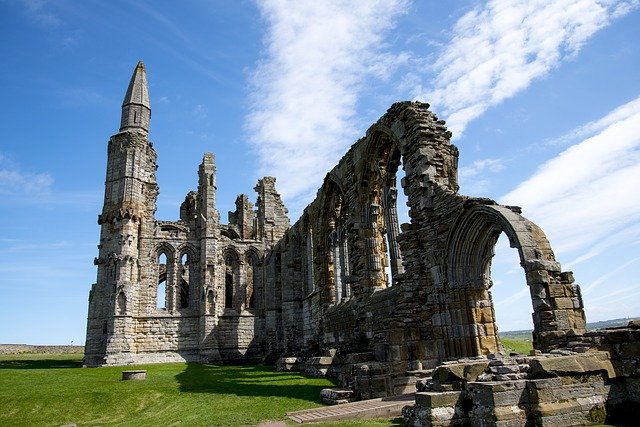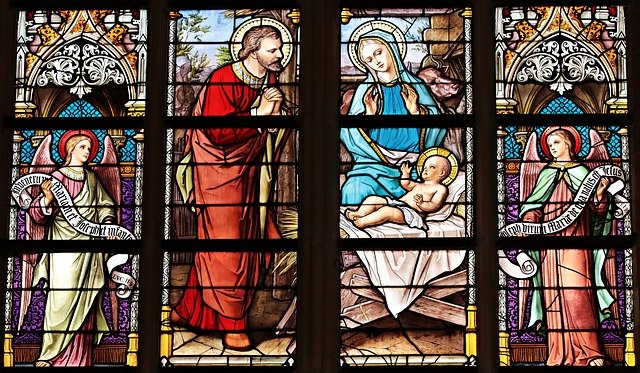By Tim Lambert
c 180 AD The first evidence of Christianity in Roman Britain
304 St Alban is the first known Christian martyr in England
313 The Emperor Constantine allows Christians freedom of worship
314 3 Bishops from Britain attend a conference in France
407 The Romans leave Britain and the native people (Celts) are left to fend for themselves
c 450 Saxons from Germany invade Eastern England. They slowly advance across the country. The Saxons are pagans and as they advance Christianity disappears from England except in the SouthWest
6th Century Cut off from Rome Christians in Wales, Cornwall, Scotland and Ireland develop their own Celtic Church
597 Missionaries are sent from Rome to preach in Kent. Eventually the people of Kent and Essex are converted
601 Augustine becomes the first Archbishop of Canterbury
627 The King of Northumbria (a kingdom in the north of England) is converted. Eventually the people follow.
630 Missionaries preach in East Anglia and Hampshire
653 The king of Mercia (a kingdom in the Midlands) is converted and his people follow

664 The king of Northumbria decides to follow the Church in Rome rather than the Celtic Church
680 St Wilfrid begins converting Sussex, the last Saxon kingdom to become Christian
851 The Danes invade England
878 Alfred the Great defeats the Danes and they agree to be baptised
Late 10th Century There is a religious revival in England and many new monasteries are founded
Early 13th Century Friars arrive in England and build friaries in most towns
Late 14th Century John Wycliffe denounces transubstantiation. His followers are called Lollards (meaning mutterers) because they say long prayers. They translate the Bible into English.
1342-1416 The famous English mystic Julian of Norwich lives
1438 The autobiography of a famous mystic, The Book of Margery Kempe is written
1525 William Tyndale translates the New Testament into English
1530 A Protestant named Thomas Hitton is burned at Maidstone. Thomas More calls him ‘the Devil’s stinking martyr’.
1534 Henry VIII makes himself head of the Church of England
1536 William Tyndale is burned
Smaller monasteries in England are dissolved
1539 Henry VIII closes the larger monasteries
1545 Latin mass is replaced by mass in English
1546 Anne Askew is martyred
1549 The first Book of Common Prayer is published
1554 Under Queen Mary the Act of Supremacy (which made the English monarch head of the Church of England) is repealed
1553 Mary begins murdering Protestants
1558 Mary dies and Elizabeth becomes queen
1559 The Act of Supremacy is restored
1570 The Pope excommunicates Queen Elizabeth
1605 The gunpowder plot, a Catholic conspiracy to blow up Parliament, is discovered.
1611 The King James Bible is published
1612 The first Baptist Church in England is formed
1642-46 The Civil War disrupts life in England. Afterwards many people form their own independent churches separate from the Church of England
1650 George Fox is arrested for blasphemy. He tells the judge he should ‘tremble at the word of the Lord’. Afterwards Fox and his followers are called Quakers
1661 The Corporation Act says all officials in towns must be members of the Church of England
1662 The Act of Uniformity says all clergy must use the Book of Common Prayer
1665 The Five Mile Act forbids non-Anglican ministers to come within 5 miles of towns with a mayor and corporation
1678 John Bunyan publishes his classic work The Pilgrim’s Progress
1689 The Toleration Act allows non-conformists (Protestants who do not belong to the Church of England) to have their own places of worship and their own preachers
1701 The Act of Settlement is passed. It states that Catholics or anyone married to a Catholic cannot succeed to the throne.
1738 John Wesley is converted
1739 George Whitefield begins preaching
Late 18th Century Religious enthusiasm begins to revive in England after a long period of torpor. A group of Christians called the Clapham Sect is formed. They get their name because many members live in Clapham.
1829 The Catholic Emancipation Act allows Catholics to become MPs and hold public office
1851 A survey shows only about 40% of the population are at church or chapel on a given Sunday
1865 The Salvation Army is founded
1881 A survey shows only about 1/3 of the population attend church on a Sunday
Early 20th Century The Pentecostal Movement begins

1952 C S Lewis publishes his book Mere Christianity
1958 J B Phillips publishes The New Testament in Modern English
1970s House Churches are formed. The Alpha Course is invented.
1994 The Church of England ordains women priests
2021 In a census the majority of people in England do not identify as Christians